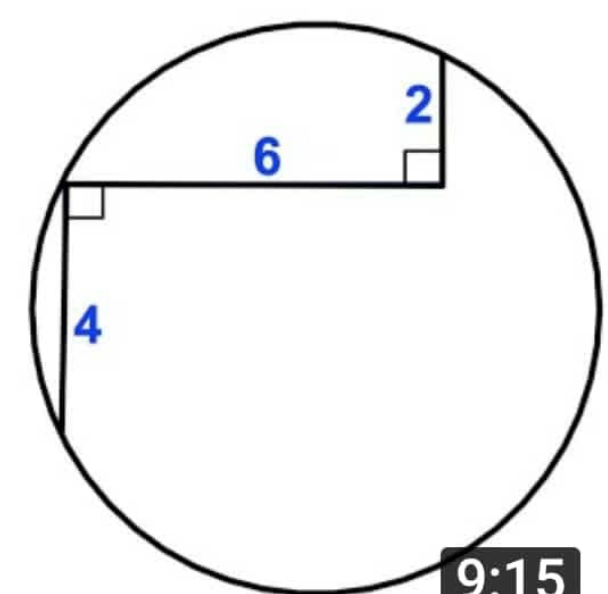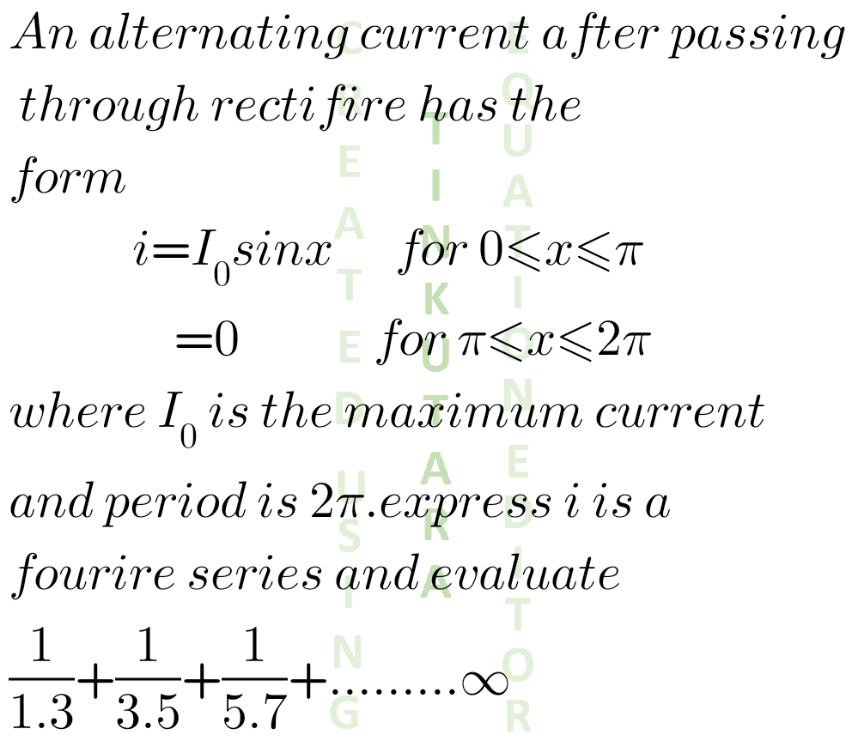
Question and Answers Forum
OthersQuestion and Answers: Page 41
















|
Question and Answers Forum |
OthersQuestion and Answers: Page 41 |

|

|
| The sum of the squares of two consecutive odd numbers is 130. Find the larger number. |

|
| Prove or disprove ((cos(1+(1/( (√3))))𝛑)/1^2 )+((cos(1+(1/( (√3))))2π)/2^2 )+((cos(1+(1/( (√3))))3π)/3^2 )+...=0 |
| x=2^(p ) and y=2^(q ) . Evaluate in terms of x and/ or y (i)2^(p+q) (ii) 2^(2q ) (iii) 2^(p−1) |

|

|

|

|

|

|

|
| If 75% of 68 is the same as 85% of n, find n. |

|
| An alternating current after passing through rectifire has the form i=I_0 sinx for 0≤x≤π =0 for π≤x≤2π where I_0 is the maximum current and period is 2π.express i is a fourire series and evaluate (1/(1.3))+(1/(3.5))+(1/(5.7))+.........∞ |
| Decompose the function P(x) = ((x^4 +2x^3 +6x^2 +20x+6)/(x^3 +x^2 +x)) in partial fractions. |
| Some useful approximations of sine function sin((π/7))=((96)/(221)) sin((π/9))=((128)/(373)) sin((π/(11)))=((32)/(113)) ... I am counting more ..thanking you! |
| 1−(((1.1.3)/(2.3.4)))(1/(1!))+(((3.3.7)/(2^2 .3^2 .4^2 )))(1/(2!))−(((5.7.10)/(2^3 .3^3 .4^3 )))(1/(3!))−.... |

|

|

|

|
| ∫(d^2 y/dx^2 )dy |

|
| Σ_(n=−∞) ^∞ a^((n(n+1))/2) b^((n(n−1))/2) =1+(√((2a^2 )/π))∫_0 ^∞ e^(−t^2 /2) (((1−a(√(ab)) cosh((√(log(ab))) t))/(a^3 b−2a(√(ab )) cosh((√(log(ab))) t))))dt |